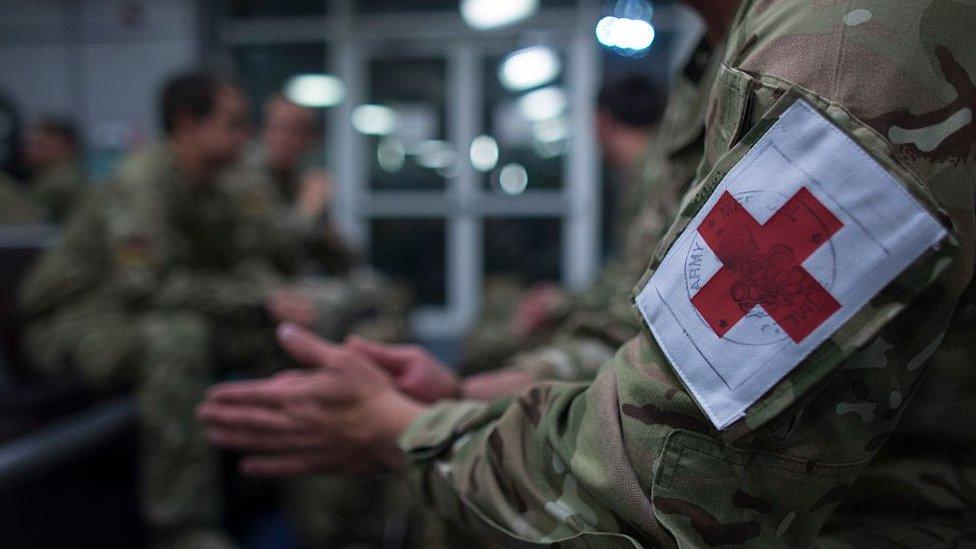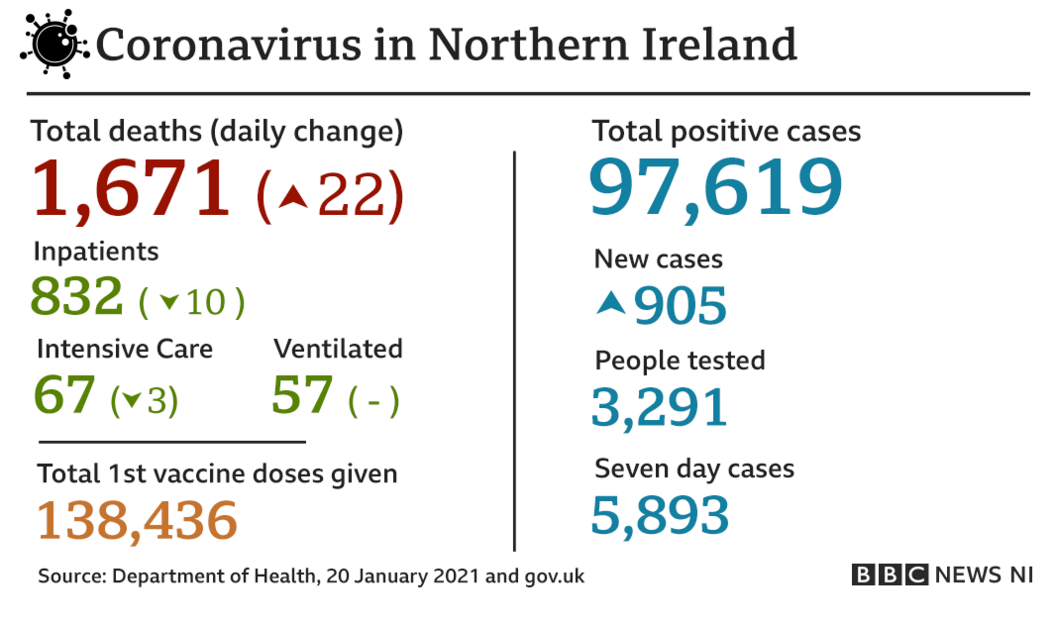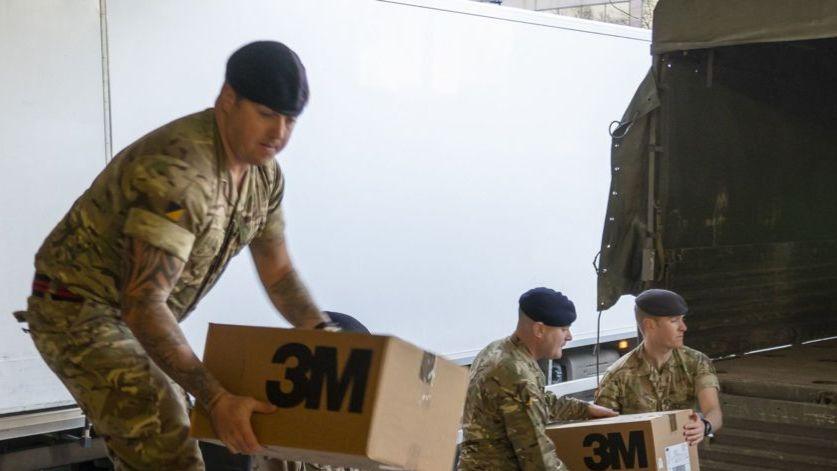Covid-19: Military to assist NI medical staff
- Published

More than 100 medically-trained military personnel will be deployed
Members of the military are to be brought in to help medical staff in Northern Ireland in the fight against Covid-19.
Health Minister Robin Swann has asked the Ministry of Defence (MoD) to help out, primarily at a number of hospitals across NI.
More than 100 medically-trained military personnel will be deployed.
Those brought in will assist nursing staff and help on the wards in a move designed to ease the pressure on staff.
In the past, the use of the military in Northern Ireland has provoked controversy.
While military help has already been used during the pandemic to transport equipment and patients, this is the first time military staff will be used in hospitals.
It is thought the first military staff will be made available as early as next week.
Mr Swann said it would have been an abdication of responsibility if he did not avail of help from the military.
He said while coronavirus cases were lower than two weeks ago, the challenge posed remained "intense" and intensive care pressures were expected to increase further in the next eight to 10 days.
Allow X content?
This article contains content provided by X. We ask for your permission before anything is loaded, as they may be using cookies and other technologies. You may want to read X’s cookie policy, external and privacy policy, external before accepting. To view this content choose ‘accept and continue’.

He confirmed that a request for military assistance for NI's health service had been accepted by the MoD.
The health minister thanked the MoD for the Military Aid to the Civil Authorities agreement, which is being provided in other UK regions.
"The armed forces have provided invaluable support in this pandemic, including aeromedical evacuation, real-estate and ongoing logistical planning," he said.
"Our hospitals are under immense pressure and an additional staffing complement will be very welcome on the front line.
"This is a health decision and I am confident it will be supported on that basis."
NI Secretary Brandon Lewis tweeted, external: "Battling #COVID19 is a national effort. I'm pleased that 110 medically-trained personnel from our Armed Forces will support health and social care teams across Northern Ireland in their vital work on the frontline against coronavirus."
The move has been welcomed by the Democratic Unionist Party.
'Green and orange issue'
When it was announced last April that the health minster had made requests for military help, Sinn Féin's Michelle O'Neill said Mr Swann had taken that decision unilaterally.
However, she later said her party would not rule out any measure necessary to save lives.
Reacting to the latest request for help, Sinn Féin said its priority throughout the pandemic had been to save lives, keep people safe and protect the health service.
"The Minister of Health has made a request for staffing support from the British Ministry of Defence," the party said.
"We do not rule out any measures to do so, and any effort to make the threat posed by Covid-19 into a green and orange issue is divisive and a distraction."

As of Wednesday, there were 832 people in hospital in Northern Ireland with coronavirus, of whom 67 were in intensive care, with 57 ventilated.
A further 22 people with coronavirus died, bringing the Department of Health's total to 1,671 while there were 905 new cases.
In the Republic of Ireland, 61 new Covid-19-related deaths were recorded on Wednesday, bringing the country's death toll to 2,768.
A further 2,488 new cases of the virus were also confirmed by the Irish Department for Health.
'Stay the course'
Speaking at Stormont's press briefing on Wednesday, Mr Swann confirmed the executive would review the current lockdown regulations on Thursday.
Northern Ireland began a six-week lockdown on 26 December, in a bid to bring the virus under control.
Ministers promised to review the regulations after four weeks.
Mr Swann said he would not pre-empt the outcome of Thursday's meeting but confirmed he would bring recommendations from his officials to the meeting.
"This is not the time to open floodgates or take premature decisions that would lead to another spike in cases," he added.
"We must stay the course."
The minister also provided the latest update on the number of vaccinations - 160,396 doses have now been administered in NI, with 21,690 of those second doses.
He said he understood the frustration of some people that they were still waiting to hear when their elderly or vulnerable relatives would receive their vaccine, but he urged patience.
"We cannot go faster than supplies allow," he said.
Related topics
- Published11 April 2020
